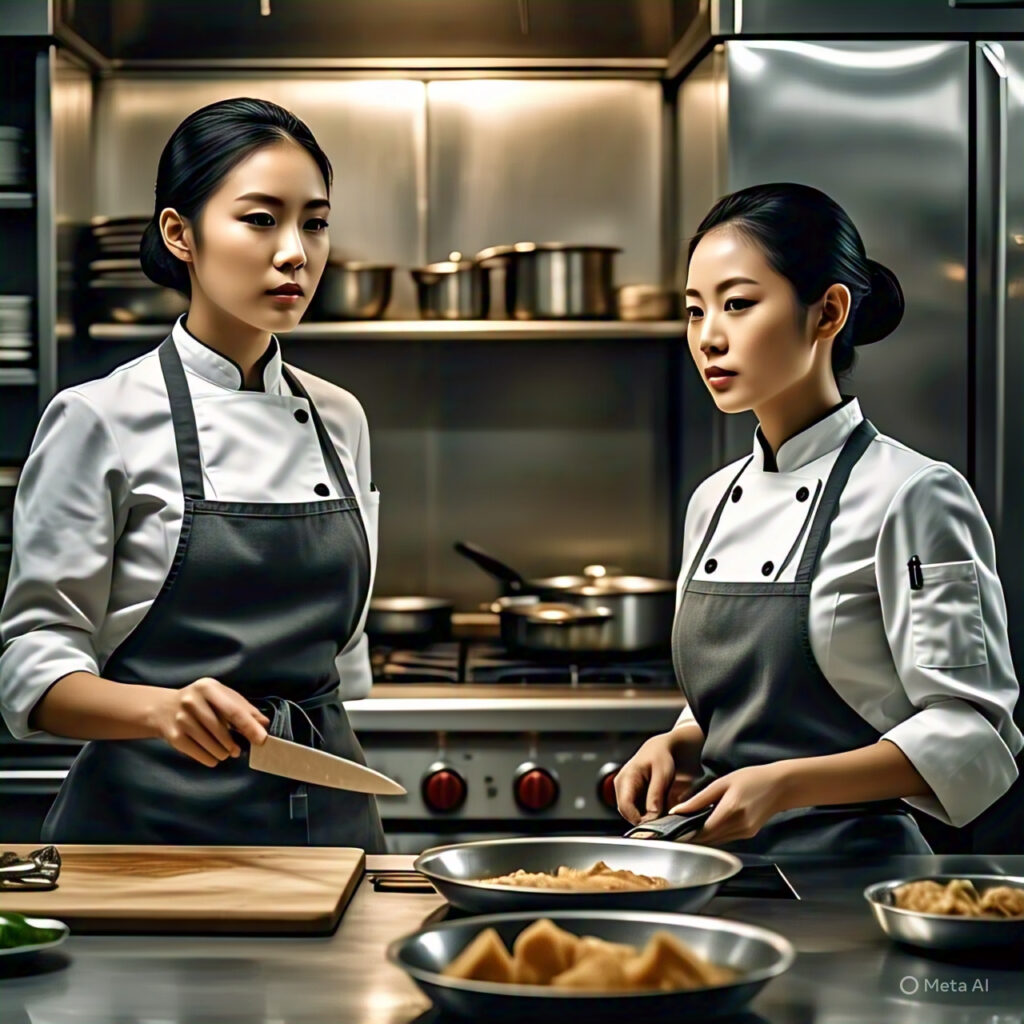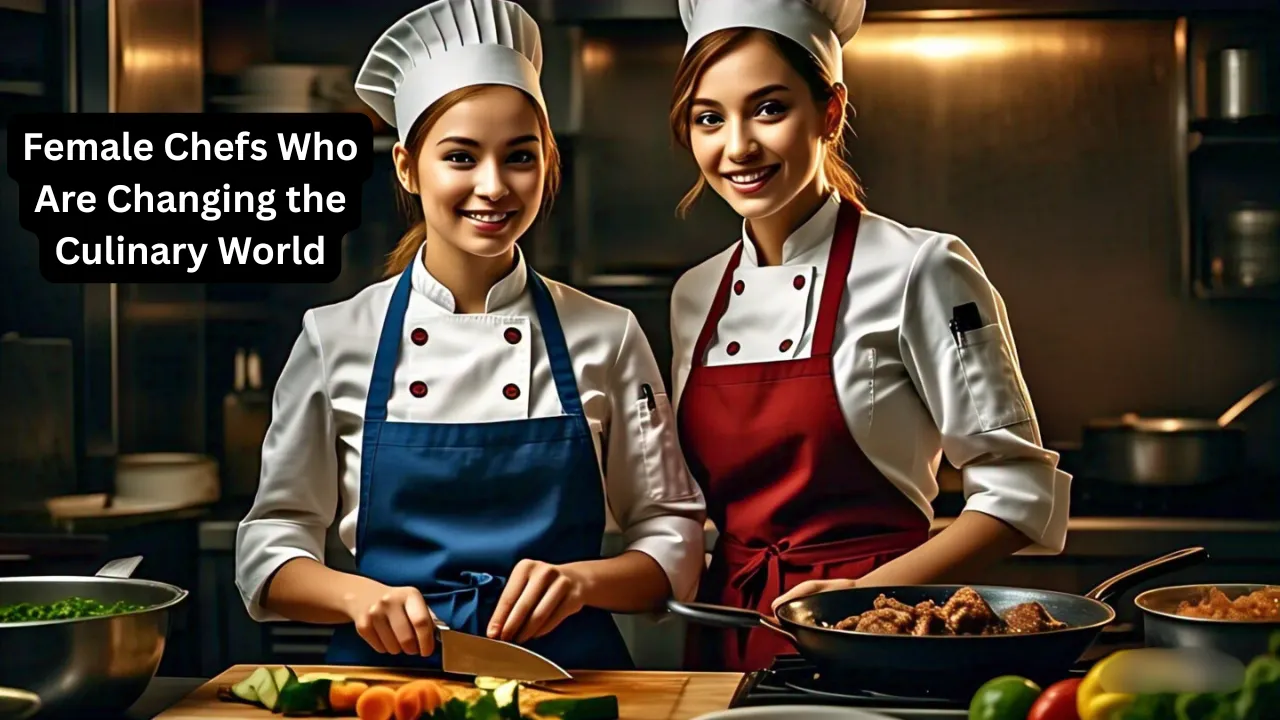Female Chefs Who Changing the Culinary World
Introduction
In the grand kitchens of haute cuisine, where fiery tempers and sharp knives collide with artistry and ambition, the presence of female chefs has grown from exception to expectation. For centuries, the culinary world was overwhelmingly male-dominated, especially in fine dining and executive chef roles. Today, women are not just working in kitchens—they’re leading them. Female chefs across the globe are reshaping what it means to be a culinary leader, blending creativity with resilience, and earning their rightful place in the spotlight.
This evolution represents more than just career advancement—it’s a cultural shift. As gender roles are reexamined in all industries, food has become a powerful platform for women to express identity, challenge norms, and tell stories through flavors and presentation. Female chefs are pioneering new cooking philosophies, emphasizing sustainability, locality, and inclusivity, and elevating food into a medium for social change.

A Brief History of Female Chefs
Historically, women cooked at home, but men were the ones recognized as professional chefs. This paradox persisted for centuries, even though many early food traditions were passed down through matriarchal lines. The idea of the male chef as a public figure—dressed in a white coat and toque—emerged prominently in the 18th and 19th centuries, and it wasn’t until the late 20th century that women began to gain real traction in the professional culinary scene.
One of the earliest trailblazers was Eugénie Brazier, who became the first person—male or female—to earn six Michelin stars simultaneously in the 1930s. Despite her monumental success, her story remained largely untold for decades. Fast-forward to the late 20th century, and women like Julia Child began to emerge as household names, bringing French cuisine into American homes and empowering women to see cooking as both art and profession.
The rise of cooking schools, food television, and food-focused media helped create more visibility for female chefs. Yet, even as doors opened, many women had to fight harder than their male counterparts to gain respect in professional kitchens. From navigating harassment to being overlooked for leadership roles, women in culinary arts often had to prove their worth twice over.
Challenges Faced by Women
Despite the progress made, the kitchen can still be a tough place for women. Professional cooking often involves long, irregular hours, intense physical labor, and a high-pressure environment—not to mention lingering sexism and outdated perceptions about leadership and strength. Many female chefs report being underestimated, passed over for promotions, or subjected to a “boys’ club” culture.
Work-life balance is another critical challenge. Culinary careers often require night and weekend hours, which can conflict with societal expectations around caregiving and family. Women who want to start families are sometimes told—explicitly or subtly—that they’ll have to choose between motherhood and career advancement.
Sexual harassment remains a serious issue in some kitchens, though the rise of the #MeToo movement has brought more attention to inappropriate behavior in the restaurant industry. Female chefs leading their own restaurants are now implementing zero-tolerance policies and building more inclusive, respectful work environments.
Access to capital and resources also presents a hurdle. While more women are opening restaurants, they still receive less funding than male restaurateurs. This lack of investment limits the scale at which women can grow their culinary businesses and build lasting legacies.
Famous Female Chefs
Several remarkable women have made a lasting impact on the culinary world, paving the way for others to follow.
- Dominique Crenn – As the first woman in the U.S. to earn three Michelin stars for her restaurant Atelier Crenn in San Francisco, Crenn has become a global icon for innovation and excellence. She’s also an outspoken advocate for LGBTQ+ rights and sustainable food systems.
- Clare Smyth – Formerly the head chef at Restaurant Gordon Ramsay and now the owner of the three-Michelin-starred Core in London, Smyth is a powerhouse in the world of fine dining and one of the most respected chefs in the UK.
- Ana Roš – A self-taught Slovenian chef, Roš earned international acclaim for her restaurant Hiša Franko. Named the World’s Best Female Chef in 2017 by The World’s 50 Best Restaurants, she’s an ambassador for Balkan cuisine and sustainability.
- Mashama Bailey – Executive chef and co-owner of The Grey in Savannah, Georgia, Bailey has redefined Southern cuisine through a lens of African-American heritage and culinary storytelling.
- Julia Child – Though not a restaurant chef, Child remains a towering figure in culinary history. Her cookbooks and television shows democratized French cooking and inspired generations of women to pursue culinary careers.
These women have not only built successful careers but have also used their platforms to challenge inequity, push boundaries, and inspire future generations of female chefs.
The Future of Women
Looking ahead, the future is bright—and more inclusive—for women in the culinary industry. Culinary schools are seeing more female enrollment than ever before, and mentorship programs specifically for women are helping build networks of support and guidance. Organizations such as Les Dames d’Escoffier and Women Chefs & Restaurateurs (WCR) are leading efforts to promote female leadership in food and hospitality.
Technology and social media have also become powerful tools for female chefs to share their work, build brands, and connect directly with audiences. Platforms like Instagram, YouTube, and TikTok allow chefs to break free from traditional gatekeepers and showcase their talents to millions, democratizing exposure in a once-exclusive industry.
More women are embracing roles as food entrepreneurs, cookbook authors, TV personalities, and restaurant owners. They’re challenging the image of the chef as a hard-edged authoritarian and replacing it with one of collaboration, compassion, and creativity. The culinary world is also seeing increased awareness of intersectionality, recognizing the specific experiences of women of color, LGBTQ+ chefs, and those from marginalized communities.
As this new generation rises, they bring with them not just talent, but a vision of what food—and the kitchen—can become: a place of innovation, inclusion, and inspiration.
FAQs
Who was the first famous female chef?
The first widely recognized female chef was Eugénie Brazier, a French culinary legend who became the first person to earn six Michelin stars in 1933. She paved the way for future generations of women in professional kitchens, though her legacy remained largely overlooked for decades.
Why are there fewer female chefs than male chefs in fine dining?
There are several reasons, including systemic gender bias, workplace discrimination, and the demanding hours that conflict with traditional expectations around family and caregiving.
Are there any Michelin-starred female chefs?
Yes, many! Notable Michelin-starred female chefs include Dominique Crenn, Clare Smyth, Anne-Sophie Pic, and Helene Darroze.
What challenges do female chefs face?
Female chefs often deal with issues like sexual harassment, lack of mentorship, lower funding, and workplace discrimination.
How are female chefs changing the culinary industry?
Female chefs are emphasizing inclusive leadership, sustainable cooking, and cultural storytelling through food.
Conclusion
The journey of female chefs is a testament to strength, resilience, and undeniable talent. These women have overcome systemic barriers to make their mark on one of the most competitive industries in the world. In doing so, they’ve changed how we think about food, leadership, and equality.
By supporting female-led restaurants, reading their cookbooks, watching their shows, and celebrating their achievements, we contribute to a more balanced and enriched culinary future. Because when women lead in the kitchen, the whole world tastes the difference.







